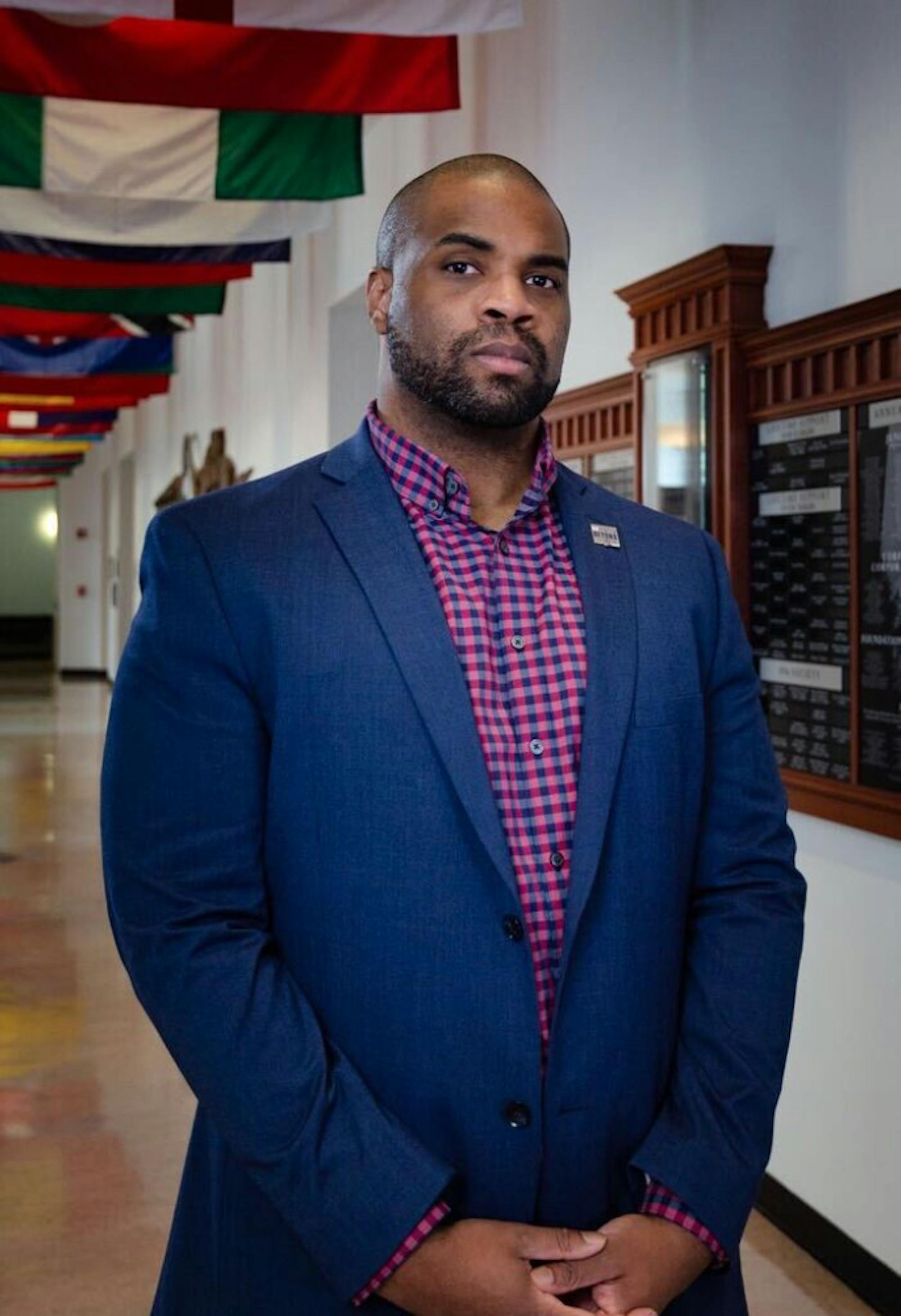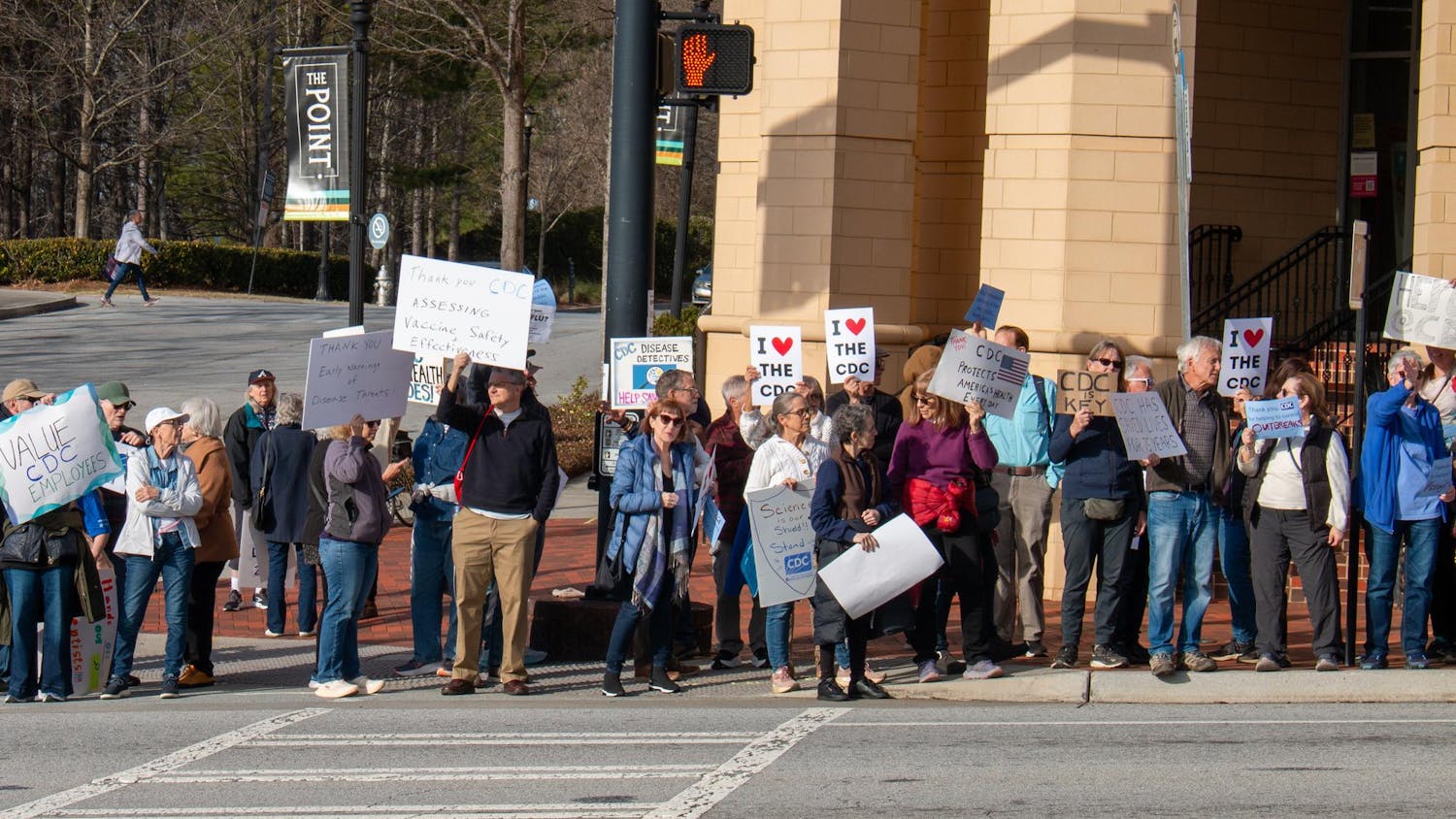Emory University partnered with Cornell (N.Y.), Howard (D.C.), Rice (Texas) and Yale (Conn.) business schools for the second annual John R. Lewis Case Competition (JLCC). The contest invites teams of undergraduate and graduate students from all areas of academia and partners them with corporations to address how businesses can use their resources to address racial injustices in one or more of three areas, including wealth and income disparities, health outcome disparities, and educational and skills attainment gaps.
The competition, which is the brainchild of Deloitte Senior Consultant Willie Sullivan (21B), came about as a student-led response to the reality of America’s racial disparities that gained widespread attention during the Black Lives Matter protests in 2020.

Sullivan said he was determined to fuse corporations’ declarations of support and students’ ardent advocacy, and wanted to honor and build upon the legacy of civil rights icon and Georgia Rep. John Lewis, who died on July 18, 2020.
Sullivan contacted Lynne Segall, associate dean of management practice initiatives at Goizueta in the summer of 2020, who said it “was an immediate ‘Yeah, let’s go figure this out.’”
The competition description stated it “aims for lasting change” by providing participants with an opportunity to “provide bold, innovative, and actionable recommendations for companies actively looking to address issues of racial inequality,” according to the competition’s website. Unlike other case competitions, which focus on a contrived prompt, JLCC directs competitors’ attention towards a real-world issue that affects millions today.
In its first year, over 500 students from 52 different universities participated. Semifinalists worked with companies such as Walmart, Salesforce, HP and Truist, with the winning team creating a plan for Johnson & Johnson that would inspire one million Black girls to study STEM through using products and incentives.
Unlike last year, Emory partnered with other business schools to organize this year’s contest. Each member of the runner-up team that worked with HP was offered an internship by the major tech corporation, and one of its members was given a job.
In the eyes of the case competition’s Managing Director Jasmine Burton (22B), JLCC provides those who participate with a wealth of opportunities.
“There's an opportunity to drive impact through the private sector approach, an opportunity to support nonprofit public sector grassroots organizations, as well as an opportunity to further your own professional development as someone who is interested in working at intersections and being a part of the future of [Diversity and Inclusion],” Burton said.
Burton also mentioned that the competition’s research aspect presents experiential learning opportunities to contestants. The competition stays true to its namesake, Burton said, honoring the late congressman’s famous guiding mantra: “Get into good trouble.”
“When you’re aligning with a company that has a challenge, semifinalists are given some budget and some resources to actually do some market research … you might unearth things that are hard to swallow,” Burton said. “That might not be easy for the company to hear, which I think is good trouble, right? Those are the things that are not necessarily heralded or supported in a lot of spaces but those are the things that need to be known in order to improve them.”
In addition to its potential to impact business and, through that, society, Burton and Segall noted the competition's implications for agents of change at Emory.
“What Willie’s experience shows is that if you have an idea and the grit to make it happen, this institution will stand behind you,” Segall said.
Like Segall, Burton sees the case competition as a prime example of Emory's readiness to help students bring their ideas to life.
“This reflects very positively on the business school leadership and on Emory overall that we stand behind our students,” Burton said. “If a student brings a good idea, we're going to get behind it and support it on the individual level.”






